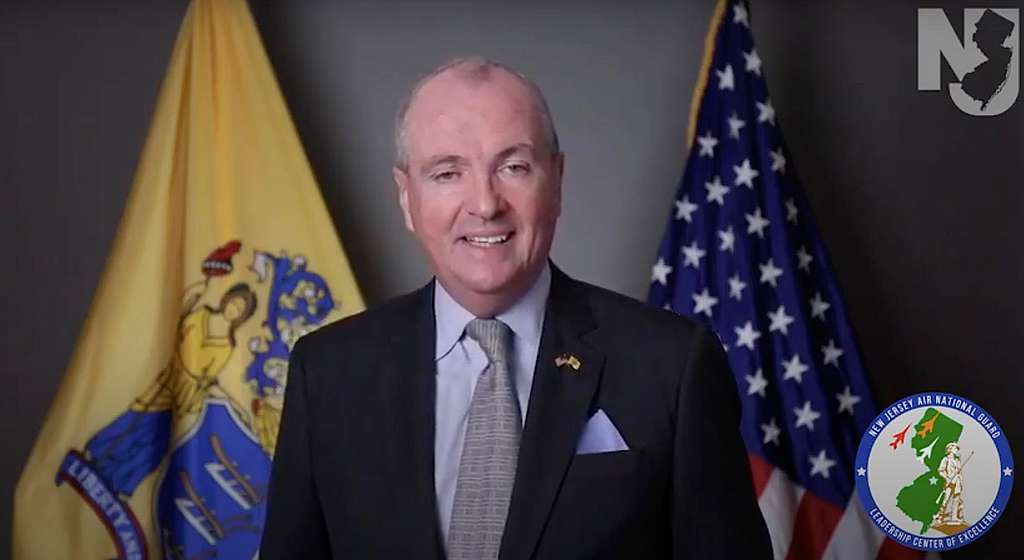As current Governor Phil D. Murphy has reached his term limit, several candidates are running for his position. New Jersey adults will soon be able to vote for their new governor in the primary this June and in the general election in November.
The final eleven New Jersey Governor race primary candidates have recently been announced. The six Democrats include Steve Sweeney, Sean Spiller, Mikie Sherrill, Josh Gottheimer, Steve Fulop, and Ras Baraka. As for the Republicans, Bill Spaeda, Jack Ciattarelli, and Jon Bramnick have been reported. Lastly, Mario Kranjac and Justin Barbera did not meet all of the requirements to be a candidate, but will remain on the primary ballot as stated in “Here’s the final list of who’s running for N.J. governor and Assembly this year”.
Beginning with the Democratic candidates, according to “Steve Sweeney For New Jersey,” Steve Sweeney was the former Senate President who was born in Camden and raised in Pennsauken. He has not only championed organized labor, workers’ rights, and working families, but he has also advocated for those with disabilities after his daughter was born with Down Syndrome. He served on the Gloucester County Board of Chosen Freeholders from 1997 to 2010 and as State Senator from 2002 to 2021, in which he developed New Jersey’s Paid Family Leave Program. This program ensures parents can take time off from work to care for a newborn or a family member with a serious health condition. In 2009, Sweeney was elected Senate President, where he delivered pension system reforms, education reforms, equal pay for women, equal marriage rights for the LGBTQ+ community, and more.
“Sean Spiller for Governor” states Sean Spiller was a former public school teacher who rose to the rank of the New Jersey Education Association and was the former Mayor of Montclair. Like his immigrant parents, Spiller highly values the importance of education. Additionally, he has championed green development to help reduce Montclair’s tax burden. Sean Spiller aims to continue investing in public education and making New Jersey a more affordable place for the working class.
According to “US Congress Woman Mikie Sherrill Biography,” Mikie Sherrill is the only female candidate running for governor this year. She graduated from the United States Naval Academy in 1994 and then spent 10 years on active duty with the US Navy. Her missions spanned throughout Europe and the Middle East as a Sea King helicopter pilot. She worked on the Battle Watch Floor of the European Theater during the Iraq invasion, served as Flag Aide to the Deputy Commander in Chief of the US Atlantic Fleet, worked as a Russian policy officer, and oversaw the relationship between the US Navy and the Russian Federation Navy. She is a graduate of Georgetown Law School. “Mikie Sherrill For New Jersey” highlights how Mikie aims to bring down costs for New Jersey families and is fighting for reproductive freedom to defend abortion rights, as well as access to contraception and IVF.
Josh Gottheimer grew up in North Caldwell and attended West Essex High School, the University of Pennsylvania, and finally, Harvard Law School. He has worked for President Clinton, President Obama, the US Commission on Civil Rights, and the Federal Communications Commission. Additionally, he has taught history, worked for companies such as Microsoft and Ford, and started a non-profit organization called Jersey-On to benefit the less fortunate. In 2016, Gottheimer ran for Congress and became the first Democrat to hold that seat in 84 years after beating a right-wing extremist. He is also an advocate for reproductive rights, clean air and water, LGBTQ+ rights, lower health care and housing costs, and common sense gun safety as stated in “Josh For Jersey Governor”.
As illustrated in “Steven Fulop For Governor,” Steven Fulop is from Edison, where he grew up in a Jewish household. He graduated from Binghamton University in 1999 and then studied abroad at Oxford University. He then worked at Goldman Sachs in Chicago and later in Manhattan and Jersey City. He was elected mayor of Jersey City in 2013, where he showed leadership and advocacy. For instance, Jersey City became the first city in New Jersey and the sixth in the country to ensure paid sick leave. He has shown economic development without raising taxes. Furthermore, he is credited with ideas regarding prisoners reentering society, protecting small businesses, and public safety reform that have been used as a model for various cities across the United States.
According to “Ras for Governor,” Ras Baraka was a poet, activist, coach, teacher, and principal before becoming the mayor of Newark. His leadership in New Jersey’s largest city has led to a sixty-year all-time low in violent crime, strengthened Newark’s economy, ensured clean drinking water by replacing over 23,000 lead pipes, mandated 20% of developments be affordable housing, implemented green initiatives, and reduced chronic street homelessness by 60%. As governor of New Jersey, he aims to improve the state’s infrastructure, affordability, and education.
As for the Republican candidates, “Spaeda for New Jersey” states that Bill Spaeda is a radio host on NJ101.5 FM as well as an entrepreneur. He is not afraid to stand up against the ideas he opposes. As governor of New Jersey, he aims to defend New Jersey from illegal immigration, make New Jersey affordable, and fix the infrastructure.
“Jack for New Jersey” describes that Jack Ciattarelli was born in Somerville and raised in Raritan. He earned an accounting degree and an MBA from Seton Hall University. He has been a part of the Raritan Borough Council, Somerset County Freeholder Board, and the State Assembly. In 2021, Jack ran for governor in a close race against Phil Murphy, and even though he lost, he re-ignited New Jersey’s Republican Party. Since then, he has gained lots of recognition and popularity.
As detailed in “Meet Jon Bramnick,” Jon Bramnick is a Syracuse University and Hofstra University Law School graduate. He is a lawyer who founded a law firm based in Scotch Plains and was elected to the Plainfield City Council, where he began public service. He served as an assistant professor of business law at Rider University as well as an adjunct professor of business at Rutgers University. He was elected to serve five terms as Republican Leader of the State Assembly and also served in the State Senate representing the 21st legislative district. He aims to end the one-party rule over Trenton in order to restore balance in New Jersey.
Extensive information regarding these candidates’ ideas and advocacies has been released; the campaigns are gaining momentum as the race approaches the primary election. Many have been very vocal regarding housing, abortion, and immigration, which have become determining factors of New Jersey’s future. Voters are encouraged to donate to campaigns and volunteer to help their candidate of choice gain the position of Governor of New Jersey. For those turning eighteen or at the age of eighteen, be sure to register and cast your vote at your local voting site. The next few years depend on your vote for governor, so do your research, register, and vote for the candidate you believe will make sufficient change in New Jersey.
West Morris Mendham history teacher, Mr. Heditsch adds that “…every voter should study the candidates so that they can make an informed decision,” about the race. At this time, lots of propaganda is constantly being released through social media, so young voters need to ensure the information they receive is from “very legitimate, well-researched sources,” before making a final decision, details Mr. Heditsch. He adds that he tries to push students towards “established newspapers, established news organizations, and not just chatter that they might hear on social media,” as “it’s very easy to take a look at your phone and see what’s the latest,” even though it may contain false information. Additionally, New Jersey and Virginia will be having their governor’s elections in November, which is one year after the presidential election, “so a lot of times, the New Jersey governor’s race tends to reflect how people feel about the previous presidential election;” over the years, New Jersey has seen two different outcomes, Mr. Heditsch describes. In other words, he adds that “New Jersey and Virginia create somewhat of a backlash to what just happened in the last election,” which may be seen in the coming months. Overall, Mr. Heditsch encourages young voters to become more involved and mobilized in the governor’s race because these state issues that candidates are willing to change are relevant to all residents of New Jersey, including young voters ages 18 to 25. Be sure to cast your vote this coming June and November.








